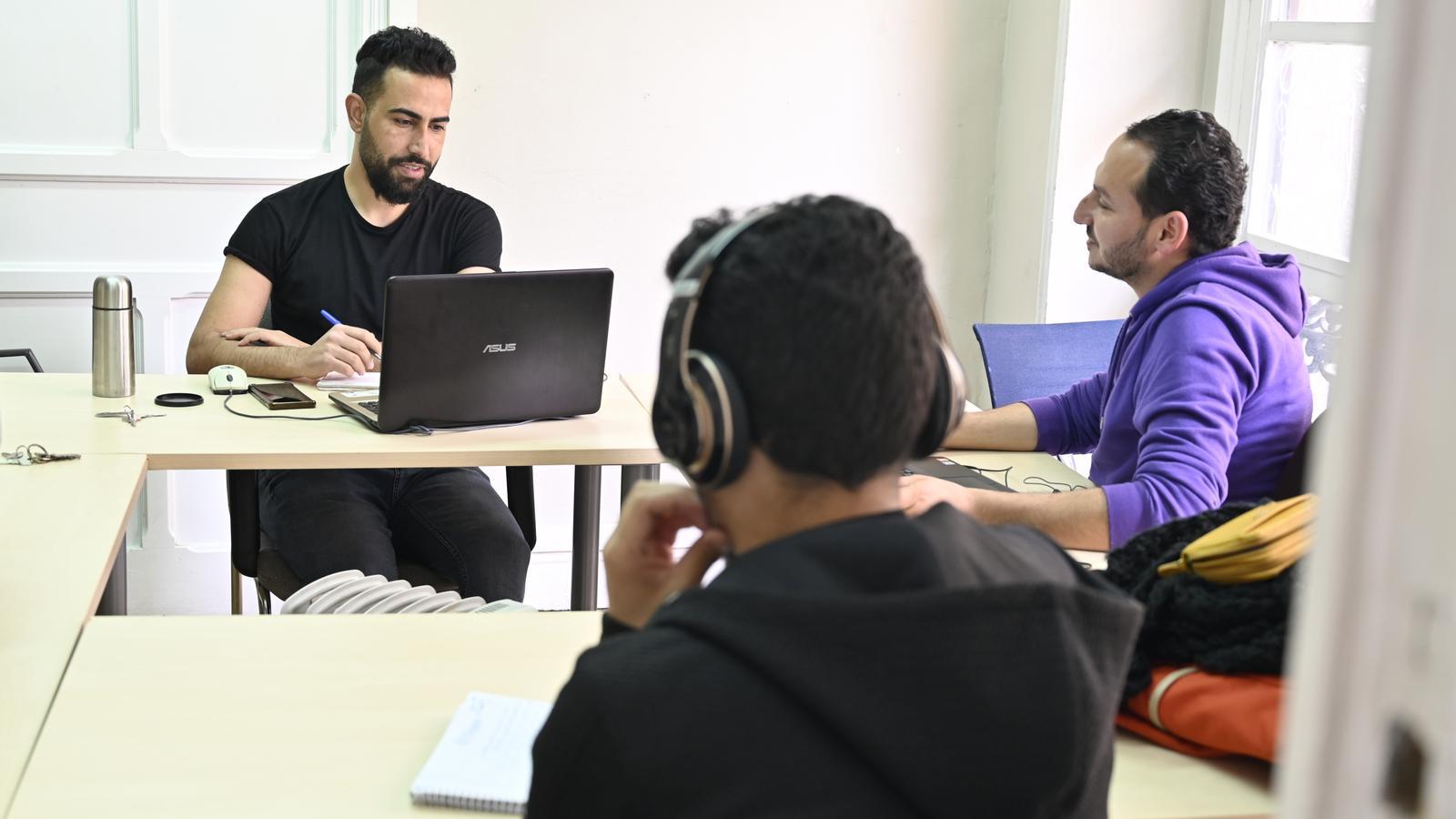'Baynana', the first media outlet made by refugees, seeks to break stereotypes
The project, in Spanish and Arabic, aims to make success stories visible and provide truthful information to newcomers

BarcelonaOften, journalists try to give a voice to those who don't have one, but a team of Syrian refugees in Madrid has decided to go one step further: to write a digital magazine to speak on their behalf. This is the story behind information outlet Baynana, which in Arabic means "among us". "'Us' is all of us, there is no 'them' or 'the others'," they explain.
"The media in Spain usually talk about migrants and refugees as if they were criminals or victims. And we want to show success stories we see every day, and also talk about what unites us," explains Muhammad Subat, one of the four members of the team, in a video call. Stories, published in Arabic and in Spanish, like that of Ahraf Kachach, the Barcelona influencer who fights racism and xenophobia on YouTube, or the mothers organisation in Cañada Real in Madrid, who work hard to raise their children in a shanty town where there has been no electricity for six months. "We also want to provide useful and accurate information for people who, like us, have recently arrived without knowing anything about the country and who don't speak the language," he adds.
And at a time of rising hate speech, Baynana is about building bridges, looking at what unites us: biographies of Moroccan players in the League, the music of Darawish which transports us to the eastern Mediterranean or the Arab roots of Mediterranean food. It keeps up with current affairs either. Thus, it is worth reading their take on the latest migratory crisis in Ceuta. And they don't shy away from tackling thornier issues, such as the case of Palestinian journalist Muath Hamed, who denounced pressure and threats from the Mossad, the Israeli secret services, with the Guardia Civil's complicity.
Like his colleagues at Baynana, Subat was born in Daraa, the southern Syrian city where the revolution against Bashar al-Assad broke out ten years ago, and trained as a war journalist: "We had to leave the country in 2018, when al-Assad's army and Putin's forces occupied the area, because our lives were in danger". The army of young people who chose to pick up a camera rather than wield a gun against Al-Assad's hermetic dictatorship has been key to letting the world know what was happening in Syria
Evacuating the Committee to Protect Journalists
Around seventy editors, photographers and activists were able to flee thanks to an evacuation coordinated by the Committee to Protect Journalists (CPJ). After some time in northern Syria, threatened by bombing and fundamentalist groups, they continued their journey to Turkey. Shortly afterwards, CPJ offered to help them seek safety in Europe, with three options: France, Germany or Spain.
"I chose Spain because I knew that in France there are many problems of racism and after ten years in Syria I wanted to live in peace... Besides, I have friends here and I am also a Barça fan", Subat explains with a smile on his face. "There's racism everywhere, but we've met some very nice people. We have been lucky"
Without knowing the country or speaking the language, four of the Syrian reporters who were welcomed to Spain at the beginning of 2019 soon started working on the magazine. "We never stopped being active on social networks, we wanted to continue explaining what is happening in Syria and we wanted to continue doing journalism. We hesitated for a while whether to open up a YouTube channel, but as we saw that there were no other media in Spanish or Arabic we opted for the magazine." Their audience is the Arabic-speaking community in Spain, not only Syrians, who are few in number due to the lack of interest shown by successive governments in Madrid in welcoming the diaspora of the bloodiest war of the 21st century.
The team is completed by Ayham al-Ghareeb, who arrived from Syria with his wife and two young children; Moussa al-Masri, who had to flee Idlib besieged by extremists and bombing by Russian aircraft; and Okba Mohamed, 22 years old. With the support of foundation Por la Causa, they have been able to launch a crowdfunding campaign to make the magazine viable. It's complicated to be a refugee, to find a job and also to feed a magazine", admits the Syrian journalist. Now that the project has been launched, the most difficult thing remains: to get the funding to make it sustainable. But those who had the courage to defy Assad's regime of terror will not give up easily. And journalism in our home, which is now their home, is gaining a new voice to make itself heard.
